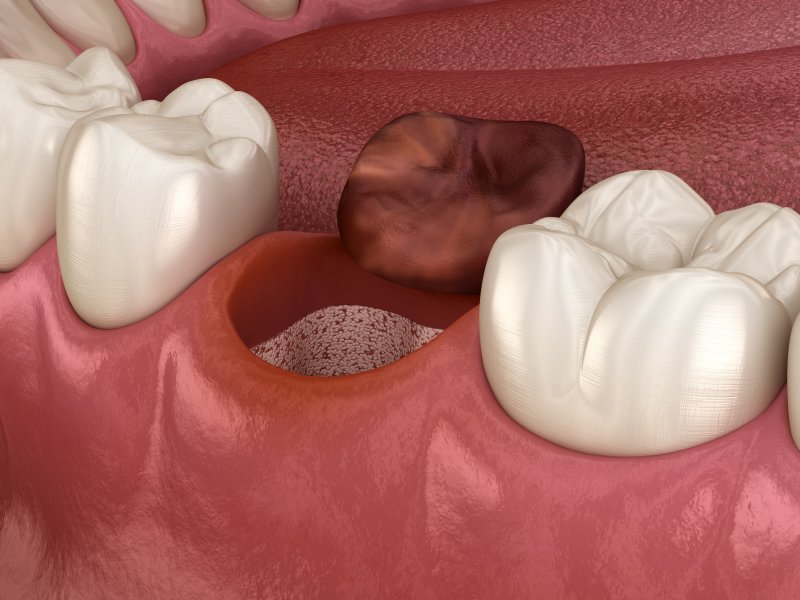
After a tooth extraction, most are eager to put treatment behind them. That’s a natural reaction – having your teeth pulled doesn’t hurt, but it’s still not a fun experience. Still, don’t neglect your recovery at this point. There are steps you should take to prevent a dry socket post-treatment. Luckily enough, though, your Chesapeake dentist knows the methods in question. So, read on to learn how best to avoid dry sockets after tooth extractions.
What’s a Dry Socket?
Put simply, a dry socket is an issue that can occur after a tooth extraction. It almost always interferes with the normal recovery process. For a more detailed understanding, however, some context is needed.
You see, a treatment site won’t instantly heal after an extraction. (It needs time to adjust the affected tissues and nerves.) Consequently, it forms a blood clot to protect itself during recovery. The clot remains until your gums fully heal and your mouth is normal again.
Given these facts, a dry socket refers to when the relevant blood clot doesn’t form. It’s thus a condition that exposes your socket’s underlying bone and nerves. This exposure then proceeds to cause intense discomfort.
What are a Dry Socket’s Symptoms?
It’s not hard to tell whether you have a dry socket. The issue’s signs are pretty noticeable, including symptoms like:
- Severe pain a few days after tooth extraction
- A visibly empty jaw socket that lacks a blood clot
- Aches that radiate from the socket
- An unpleasant mouth taste or bad breath
If you notice the signs above, see your dentist immediately. They’ll treat the problem with several possible methods – oral rinses, medication, prescription painkillers, etc. From there, you’ll quickly start to feel better and see improvements.
How Do You Prevent a Dry Socket?
Naturally, preventing a dry socket is better than dealing with one. To do exactly that, then, use the following tips:
- Don’t Use Tobacco – Tobacco products can put you at high risk of dry sockets.
- Eat Soft Foods – During the first day after surgery, only eat soft foods. Meals with hard textures will keep a blood clot from forming. Things to try might include applesauce, yogurt, and mashed potatoes.
- Avoid Straws – Avoid using straws while healing from an extraction. As it happens, the tool’s suction force can dislodge your blood clot.
- Keep Your Mouth Clean – As you might expect, good oral hygiene keeps germs from breaking down a blood clot.
By sticking to these suggestions, you can easily prevent a dry socket. You’ll then recover from your tooth extraction much more easily.
About the Practice
Troisi Dentistry is based in Chesapeake, VA. Led by the one-and-only Dr. Lucia Troisi, our practice wants to meet every patient’s oral needs. Therefore, we offer high-quality preventive, cosmetic, and restorative work tailored to your unique smile. Our office also provides excellent emergency dental care, including procedures like tooth extractions and root canal therapy. For more information or to book an appointment, you can reach us on our website or by phone at (757)-548-1611.
